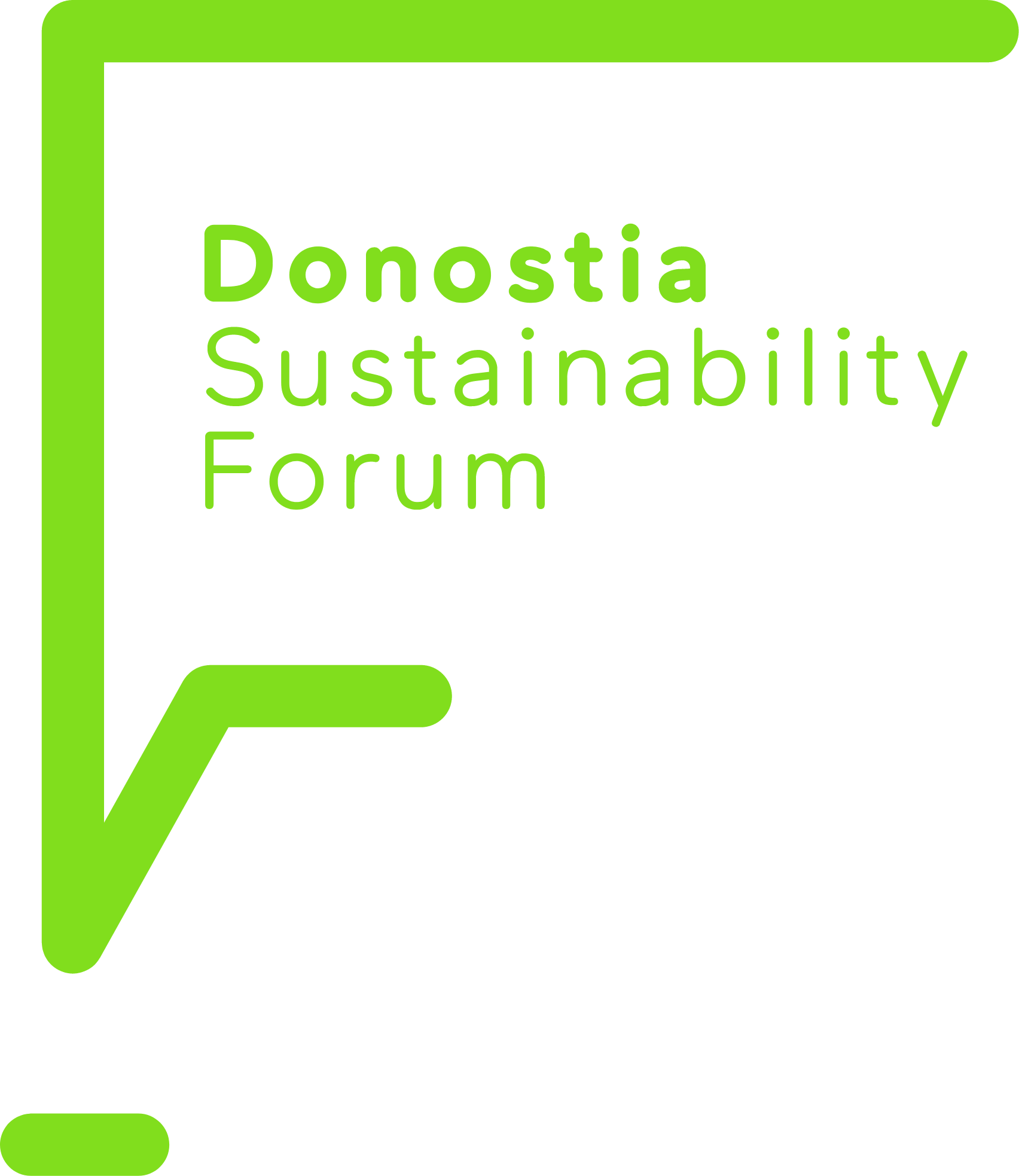We don't have to say that we are going to live worse in order to stop climate change, but that we are going to stop climate change in order to live bette
<p> Andreu Escrivá author of the book "¿Y ahora yo qué hago? Como evitar la culpa climática y pasar a la acción" commented that in reality, the title should read "And what do we do now?" because climate change is a collective problem and the solutions have to be collective. We cannot be in individualistic approaches where "I have my little ecological plot. This is what suits capitalism and the companies that can sell us packs of climate solutions for our lives. We will buy them and think we are good green citizens instead of betting on the structural changes we need. The most important thing you can do is to join other people.” </p>

Andreu Escrivá, environmentalist, doctor in biodiversity and writer, participates in the third edition of the School of Environmental Communication 2021: communicating the energy and climate transition and does not hide the fact that changes in perception are difficult and that if we raise them too abruptly we may find that people reject them and become entrenched. We must all get wet as with a fine water and a downpour from time to time because we need to get the message of sustainability across.
Thirty years ago we could have considered many things; now we need social change and productive change at the same time. We have to push the accelerator as hard as we can.
As a climate communicator, he recognizes that it is necessary to inform about climate risk without creating anxiety. "Sounding the alarm is different from being alarmist. We have to make the very serious scenarios presented to us in the IPCC scientific reports credible and at the same time make it clear that we can fight against these almost apocalyptic scenarios. To walk the line of emphasizing the seriousness of what is happening and what could happen, and hope in what can be changed. Being rigorous, but graduating the message according to the addressees. We have to measure the language very well, be empathetic and do not speak from any moral superiority.
A just energy transition can only be achieved if it does not fall back on the same people as it always does. If we focus on consumption what we will get is that people who have more, consume more, get reward points to fly or even sell these carbon points and exchange them among the rich who are those who are going to travel. Being able to get to work quickly cannot depend on a person being able to buy an electric car to get to the city center. There has to be affordable, safe, and sustainable public transportation that we can use on equal terms. What is serious is proposing solutions that some people cannot afford, such as transforming their homes energetically. The city has to be designed so that it is not a heat source, with green spaces, shadows, small climatic shelters. To look for a collective and not individualistic framework that does not depend on the income of each person. The rich have a greater capacity to adapt to climate change.
Andreu Escrivá insists that sustainability cannot be a label with which to make things more expensive but the characteristic of public policies because it is happening that the poorest - who contribute the least to the climate crisis - end up convincing themselves that they are to blame because they have an old and polluting car or they cannot buy food in a certain ecological store.
A just energy transition does not mean subsidizing the usual big companies, but rather supporting self-consumption and collective energy generation. The big energy companies may be changing the production process, but not the way they act and the social damage they cause. We all have to row in the same direction and assume the costs not all equally. People are willing to make certain sacrifices if they see that everyone makes them.
The environmental commitment of many companies is pure greenwashing; they have not changed their structure or their emissions. Green sells a lot and they are jumping on the bandwagon. "It is undoubtedly positive because companies are realizing that sustainability matters to people. It is true that some companies are introducing some changes in their production processes. The problem is that they are not enough and that in many cases they are merely strategies to sell more. We have the great danger of consumption-based solutions to climate change. Like the juice that is sold saying that the orange trees capture CO2, that the energy used is solar, etc. It is sold by saying that buying that juice is good for the planet.
Pure greenwashing! Planting trees on a global scale is worthless if you keep emitting CO2. We have to assume that what we need is not to change a piece of the machine but a change of the system, change in producing and consuming that is not going to come from some companies with a statu quo that brings them great benefits.”
The change in the system translates into two fundamental issues: a change in values and a change in the conception of time. With a little touch of humor Andreu Escrivá said that "We have to redefine what is a good life, how much I have to consume, how far I have to go on vacation or which exotic foods produced 12,000 km away are the best to be happy. Even Michelin stars value local and seasonal products as a luxury!"
Many of the unsustainable behaviors are linked to a system that devours our time. Capitalism resells us our time in the form of apps or home deliveries, but what we fundamentally lack is time. Time to go on vacation more slowly, to buy food in the most appropriate places and not trays of plastic-wrapped vegetables from the big supermarket. We also need to redefine working times.
As an environmentalist, he prefers to communicate the co-benefits of the fight against climate change. We need to imagine futures that are not black, apocalyptic dystopias. It is necessary to highlight all the benefits of a reduction of CO2 from cars not as something abstract but as something perceptible and to draw a less polluted, safer, less noisy and more humane city.
"If people are alarmed by the news of climate change and you don't offer them a way out, they are paralyzed". We have to tell them where we are heading if we do nothing and, above all, emphasize a world that is possible. We can change cities, energy generation or how we move. These are not changes in magnitude that we have not experienced in the last 100 years. The fight against climate change is not about sacrifices but about changes, some more uncomfortable and others more fantastic. When we talk about decreasing, we talk about decreasing in the consumption of some energies, but we can grow in time, in care for the most vulnerable people or in culture. Growing in many things and decreasing in some aspects that are given to us by a physical reality because we are in a finite planet that has its limits.
"We don't have to say that we are going to live worse in order to stop climate change, but that we are going to stop climate change in order to live better."To those who say they do not want to sacrifice and continue living as they do now, we must tell them that they will not be able to live as they do now either. Whether we opt for greater sustainability or do nothing, life is going to change. It is better to direct this change ourselves in order to live better than not to face the climatic and economic blows due to our lack of capacity to anticipate them.



